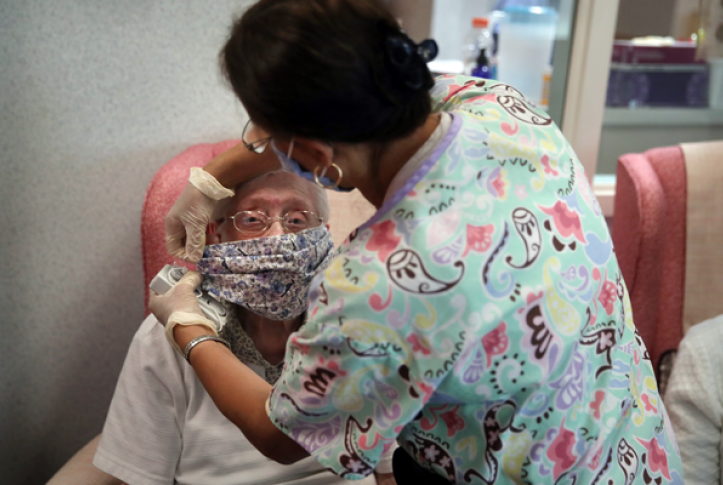Early in 2020, the COVID-19 pandemic prompted Congress and the Trump administration to rapidly waive or change existing Medicare regulations, providing unprecedented flexibility to help health care providers, Medicare Advantage plans, and Part D plans respond to the public health emergency. Between January 1 and July 24, more than 200 Medicare legislative and regulatory changes were made in response to the pandemic, under various policy rationales, such as patient safety or preventing fraud and abuse. Some of these changes have had a significant impact on the Medicare program and may continue to do so even after the pandemic ends. For example, more services can now be provided via telehealth, and many of the rules governing telehealth have been waived. As a result, providers and patients have adopted telehealth far more quickly than before the pandemic and are likely to want to continue to use the technology for some services after the pandemic ends.
Because of the urgency of the situation, nearly all the early actions were taken outside of the established notice-and-comment rulemaking process, which the Department of Health and Human Services and the Centers for Medicare and Medicaid Services (CMS) may waive or modify if they can demonstrate good cause, such as public health emergencies. While the majority of COVID-19-related regulatory changes were declared temporary when they were announced, the Trump administration indicated plans to make some permanent and had the opportunity to revisit changes through regular rulemaking. Our earlier work pointed out that it may be necessary to let certain temporary waivers expire, possibly even before conclusion of the public health emergency, if the potential for patient or program harm outweighs the potential benefits of the policy waiver (e.g., the risk associated with delaying safety inspections may, in some situations, be greater than the benefit of reducing the overall number of people coming through health care facilities to reduce the risk of infection).
Recently, Health Management Associates reviewed Medicare regulatory changes made in response to COVID-19 between July 25, 2020, and January 8, 2021. We found 49 additional changes that were newly introduced or issued to revise previous changes; this represents almost a 25 percent increase over the earlier version of the policy tracker. Most (223) regulatory changes remain in effect on a temporary basis. Twelve of the actions are not direct changes to or waivers of regulations; instead CMS indicated that, for a limited time, it would not enforce the existing regulations. Fourteen of the actions have resulted in a permanent change to the Medicare program. Only two of the changes that were implemented on a temporary basis have since been terminated. These waiver terminations reinstated requirements for the mandatory submission of skilled nursing facility staffing information and resuming contract-level audits for Medicare Advantage plans, Part D plans, and other managed care organizations.
Most regulatory changes are focused on hospitals (67) and postacute care providers (62). Nearly all Medicare providers are impacted by at least one COVID-related regulatory change, including Medicare diabetes prevention programs, opioid treatment programs, and durable medical equipment providers.
While regulatory changes addressing telehealth, expanded testing, and alternate sites of care are perhaps more well known, they comprise a smaller share of total regulatory changes. Most actions targeted payment systems and quality programs (58) and conditions of participation (55).
Actions taken, especially those early in the pandemic, have largely relied on CMS’s waiver authority (147). CMS also made 85 regulatory changes through four interim final rules with comment periods. More recently, CMS has used the regular rulemaking process to take 17 actions related to COVID-19, including making changes that had been implemented on a temporary basis permanent. These include moving additional telehealth services to the Medicare-approved telehealth services list and permitting nonphysician practitioners to supervise diagnostic tests to the extent authorized under state law and licensure. CMS also has indicated in recent final rules that it will continue to assess the impact of these waivers and has requested additional stakeholder input through future proposed rules.
The Biden administration has inherited this slate of temporary COVID-related Medicare regulatory changes and will have to decide whether and how to extend these policies given the state of the pandemic and its impact on health care providers. As the new administration addresses the ongoing pandemic with the new phase of vaccinations underway, it is likely that regulatory and subregulatory changes will continue to be introduced and modified to reflect the administration’s COVID and Medicare policies. In addition, statute limits CMS from making many of the regulatory changes permanent; this would require legislation to extend these changes after the public health emergency ends. It is possible that Congress will consider legislation that addresses at least some of the temporary changes — to modify, extend, or terminate them. Congress has already acted on 28 items through the Families First Coronavirus Response Act, the Coronavirus Aid, Relief, and Economic Security (CARES) Act, and the Consolidated Appropriations Act of 2021, including extending or delaying Center for Medicare and Medicaid Innovation demonstrations and expanding the scope of practice for some nonphysician practitioners.

